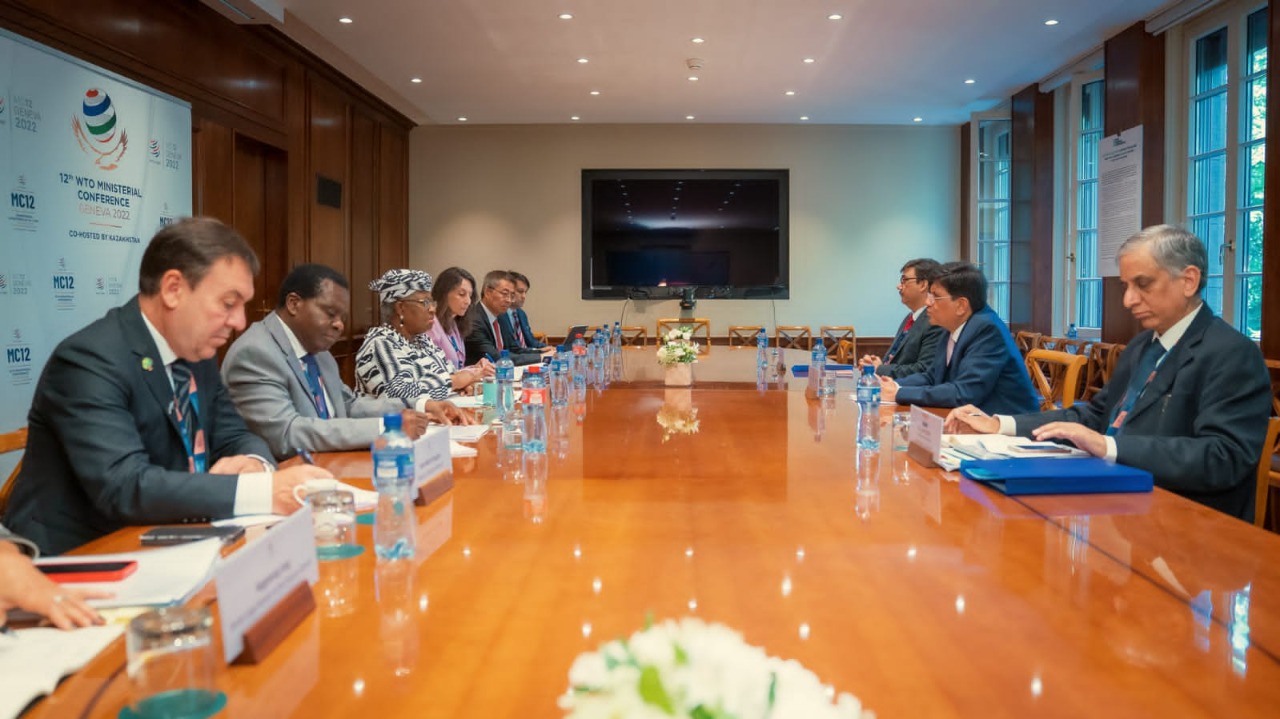
One cannot tread the path of trade on an empty stomach: Goyal at WTO meet

Geneva, Jun 14 (PTI) India on Tuesday strongly pitched to the WTO members for finding a permanent solution to the issue of public stock holding of grains for food security programmes, stating that one cannot tread the path of trade on an empty stomach.
Addressing a thematic session on agriculture, commerce and industry minister Piyush Goyal said that the developing countries are in a situation, where the temporary declarations on the issue are not going to help the countries and the permanent solution to public stock holding, pending for more than 9 years, is not yet being taken up for closure.
“WTO is an organisation for trade, but one should remember that before trade, there comes hunger and one cannot tread the path of trade on an empty stomach,” he said. Goyal said that it is possible to find the solution as there are well established and proven mechanisms available and documents are on the table which can be adopted and finalised.
It is ironical that the Agreement on Agriculture (AoA) of the WTO provides considerable flexibility to the developed members to provide huge subsidies in the form of Aggregate Measure of Support (AMS). The same flexibilities are not available to the majority of the developing countries including LDCs (Least Developed Countries).
The developed countries are giving more than 200 times the support that most developing countries are able to give. “The special and differential treatment accorded to developing countries remains crucial for us and hence bringing it into the ambit of negotiations is just not acceptable. We feel that the draft ministerial decisions on agriculture are expansive and go beyond the Doha Round mandate and do not acknowledge the progress achieved so far,” he added.
PSH (Public Stock Holding) programme is a policy tool under which the government procures crops like rice and wheat from farmers at the Minimum Support Price (MSP), and stores and distributes foodgrains to the poor. MSP is normally higher than the prevailing market rates and the government sells these foodgrans at a low price to ensure food security for over 800 million poor people. However, the WTO’s Agreement on Agriculture limits the ability of a government to purchase food at MSP.
Under global trade norms, a WTO member country’s food subsidy bill should not breach the limit of 10 per cent of the value of production based on the reference price of 1986-88.

















POST COMMENTS (0)